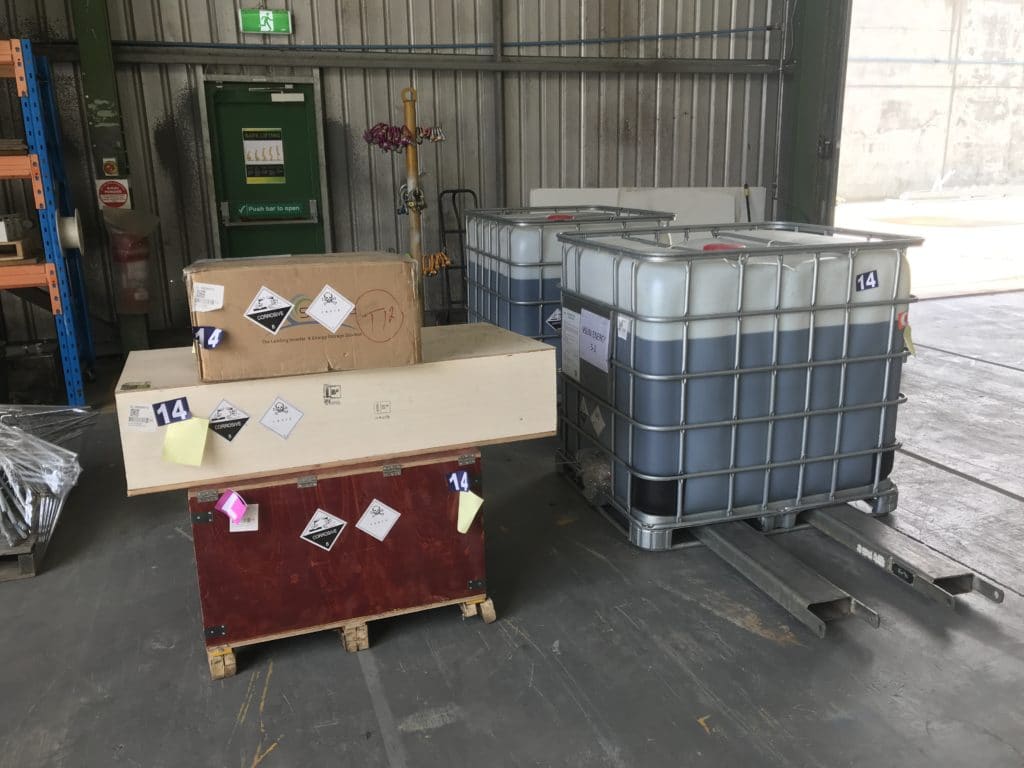VSUN, a subsidiary of Australian Vanadium Ltd (AVL), this week appointed Western Australian engineering firm Cadds Group to undertake design and consultancy work on its 5 kW/30 kWh residential VRFB.
Manufactured by Chinese firm CEC, the VRFB has arrived in Australia but in a MOU signed with the Chinese manufacturer in September last year, AVL agreed to further develop the battery for the Australian market.
AVL managing director Vincent Algar said Cadds will design a new housing for the VRFB system and oversee any changes needed to improve the battery for Australian residential conditions.
“We are looking forward to working with CADDS Group to develop the design for the residential VRFB,” Algar said.
“This will give us the opportunity to provide feedback to CEC and ensure that the product is ideal for the Australian market.”
The VRFB will be tested at Cadds’ Perth headquarters and upon successful completion of testing VSUN will deliver the unit to a residential customer with a single-phase system for tests to be completed in a residential environment with solar energy input.
VSUN expects the battery will be market ready early this year as the company looks to benefit from a growing demand for battery energy storage systems in residential and small business settings.
“By initiating market growth in smaller systems we anticipate a knock-on effect for larger VRFB uptake, which in turn will grow the market for vanadium pentoxide in energy storage,” Algar said.
Lithium-ion batteries currently dominate the residential market but VRFBs are gaining traction with advocates declaring they are safer, more scalable, longer-lasting and more reliable. Notably, vanadium flow batteries don’t degrade with cycling like lithium-ion options and are able to move electricity without generating heat.
VRFB manufacturers have typically pursued utility scale storage projects but increasingly they are targeting the household market.
VSUN said the 30 kWh capacity of its VRFB system would enable higher energy self-consumption during peak hours of solar energy stored during the daylight hours, significantly increasing the renewable energy penetration when compared with other configurations like solar only, or solar and lithium-ion systems.
Algar said the capacity would also allow an option to export excess generation at the WA Government’s Distributed Energy Buyback Scheme rates.
“With the state and federal governments’ eagerness for increasing manufacturing and green energy capability in Australia, this project is being launched at an ideal time,” he said.
In addition to the work VSUN Energy is undertaking with CEC, the company has ordered two 5 kW/30k Wh VRFB from V-Flow Tech in Singapore.
One is for a residential customer in Western Australia while the other is to be installed at the Beverley Caravan Park in WA’s wheatbelt region where it will be paired with a 6 kW solar system.
This content is protected by copyright and may not be reused. If you want to cooperate with us and would like to reuse some of our content, please contact: editors@pv-magazine.com.









I am interested in using an testing one of these batteries an inverters in my offgrid solar system,please contact me if i could do this,document an share my results here in the north east u.s
Thank you,
Derek